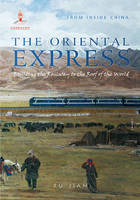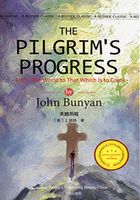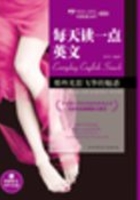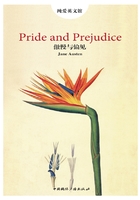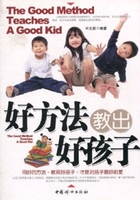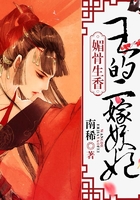I confess that when first I made acquaintance with Charles Strickland I never for a moment discerned that there was in him anything out of the ordinary. Yet now few will be found to deny his greatness. I do not speak of that greatness which is achieved by the fortunate politician or the successful soldier; that is a quality which belongs to the place he occupies rather than to the man; and a change of circumstances reduces it to very discreet proportions. The Prime Minister out of office is seen, too often, to have been but a pompous rhetorician, and the General without an army is but the tame hero of a market town. The greatness of Charles Strickland was authentic. It may be that you do not like his art, but at all events you can hardly refuse it the tribute of your interest. He disturbs and arrests. The time has passed when he was an object of ridicule, and it is no longer a mark of eccentricity to defend or of perversity to extol him. His faults are accepted as the necessary complement to his merits. It is still possible to discuss his place in art, and the adulation of his admirers is perhaps no less capricious than the disparagement of his detractors; but one thing can never be doubtful, and that is that he had genius. To my mind the most interesting thing in art is the personality of the artist; and if that is singular, I am willing to excuse a thousand faults. I suppose Velasquez was a better painter than El Greco, but custom stales one's admiration for him: the Cretan, sensual and tragic, proffers the mystery of his soul like a standing sacrifice. The artist, painter, poet, or musician, by his decoration, sublime or beautiful, satisfies the aesthetic sense; but that is akin to the sexual instinct, and shares its barbarity: he lays before you also the greater gift of himself. To pursue his secret has something of the fascination of a detective story. It is a riddle which shares with the universe the merit of having no answer. The most insignificant of Strickland's works suggests a personality which is strange, tormented, and complex; and it is this surely which prevents even those who do not like his pictures from being indifferent to them; it is this which has excited so curious an interest in his life and character.
It was not till four years after Strickland's death that Maurice Huret wrote that article in the Mercure de France which rescued the unknown painter from oblivion and blazed the trail which succeeding writers, with more or less docility, have followed. For a long time no critic has enjoyed in France a more incontestable authority, and it was impossible not to be impressed by the claims he made; they seemed extravagant; but later judgments have confirmed his estimate, and the reputation of Charles Strickland is now firmly established on the lines which he laid down. The rise of this reputation is one of the most romantic incidents in the history of art. But I do not propose to deal with Charles Strickland's work except in so far as it touches upon his character. I cannot agree with the painters who claim superciliously that the layman can understand nothing of painting, and that he can best show his appreciation of their works by silence and a cheque-book. It is a grotesque misapprehension which sees in art no more than a craft comprehensible perfectly only to the craftsman: art is a manifestation of emotion, and emotion speaks a language that all may understand. But I will allow that the critic who has not a practical knowledge of technique is seldom able to say anything on the subject of real value, and my ignorance of painting is extreme. Fortunately, there is no need for me to risk the adventure, since my friend, Mr. Edward Leggatt, an able writer as well as an admirable painter, has exhaustively discussed Charles Strickland's work in a little book[1] which is a charming example of a style, for the most part, less happily cultivated in England than in France.
Maurice Huret in his famous article gave an outline of Charles Strickland's life which was well calculated to whet the appetites of the inquiring. With his disinterested passion for art, he had a real desire to call the attention of the wise to a talent which was in the highest degree original; but he was too good a journalist to be unaware that the "human interest" would enable him more easily to effect his purpose. And when such as had come in contact with Strickland in the past, writers who had known him in London, painters who had met him in the cafes of Montmartre, discovered to their amazement that where they had seen but an unsuccessful artist, like another, authentic genius had rubbed shoulders with them there began to appear in the magazines of France and America a succession of articles, the reminiscences of one, the appreciation of another, which added to Strickland's notoriety, and fed without satisfying the curiosity of the public. The subject was grateful, and the industrious Weitbrecht-Rotholz in his imposing monograph[2] has been able to give a remarkable list of authorities.
The faculty for myth is innate in the human race. It seizes with avidity upon any incidents, surprising or mysterious, in the career of those who have at all distinguished themselves from their fellows, and invents a legend to which it then attaches a fanatical belief. It is the protest of romance against the commonplace of life. The incidents of the legend become the hero's surest passport to immortality. The ironic philosopher reflects with a smile that Sir Walter Raleigh is more safely inshrined in the memory of mankind because he set his cloak for the Virgin Queen to walk on than because he carried the English name to undiscovered countries. Charles Strickland lived obscurely. He made enemies rather than friends. It is not strange, then, that those who wrote of him should have eked out their scanty recollections with a lively fancy, and it is evident that there was enough in the little that was known of him to give opportunity to the romantic scribe; there was much in his life which was strange and terrible, in his character something outrageous, and in his fate not a little that was pathetic. In due course a legend arose of such circumstantiality that the wise historian would hesitate to attack it.
But a wise historian is precisely what the Rev. Robert Strickland is not. He wrote his biography[3] avowedly to "remove certain misconceptions which had gained currency" in regard to the later part of his father's life, and which had "caused considerable pain to persons still living." It is obvious that there was much in the commonly received account of Strickland's life to embarrass a respectable family. I have read this work with a good deal of amusement, and upon this I congratulate myself, since it is colourless and dull. Mr. Strickland has drawn the portrait of an excellent husband and father, a man of kindly temper, industrious habits, and moral disposition. The modern clergyman has acquired in his study of the science which I believe is called exegesis an astonishing facility for explaining things away, but the subtlety with which the Rev. Robert Strickland has "interpreted" all the facts in his father's life which a dutiful son might find it inconvenient to remember must surely lead him in the fullness of time to the highest dignities of the Church. I see already his muscular calves encased in the gaiters episcopal. It was a hazardous, though maybe a gallant thing to do, since it is probable that the legend commonly received has had no small share in the growth of Strickland's reputation; for there are many who have been attracted to his art by the detestation in which they held his character or the compassion with which they regarded his death; and the son's well-meaning efforts threw a singular chill upon the father's admirers. It is due to no accident that when one of his most important works, The Woman of Samaria,[4] was sold at Christie's shortly after the discussion which followed the publication of Mr. Strickland's biography, it fetched POUNDS 235 less than it had done nine months before when it was bought by the distinguished collector whose sudden death had brought it once more under the hammer. Perhaps Charles Strickland's power and originality would scarcely have sufficed to turn the scale if the remarkable mythopoeic faculty of mankind had not brushed aside with impatience a story which disappointed all its craving for the extraordinary. And presently Dr. Weitbrecht-Rotholz produced the work which finally set at rest the misgivings of all lovers of art.
Dr. Weitbrecht-Rotholz belongs to that school of historians which believes that human nature is not only about as bad as it can be, but a great deal worse; and certainly the reader is safer of entertainment in their hands than in those of the writers who take a malicious pleasure in representing the great figures of romance as patterns of the domestic virtues. For my part, I should be sorry to think that there was nothing between Anthony and Cleopatra but an economic situation; and it will require a great deal more evidence than is ever likely to be available, thank God, to persuade me that Tiberius was as blameless a monarch as King George V. Dr. Weitbrecht-Rotholz has dealt in such terms with the Rev. Robert Strickland's innocent biography that it is difficult to avoid feeling a certain sympathy for the unlucky parson. His decent reticence is branded as hypocrisy, his circumlocutions are roundly called lies, and his silence is vilified as treachery. And on the strength of peccadillos, reprehensible in an author, but excusable in a son, the Anglo-Saxon race is accused of prudishness, humbug, pretentiousness, deceit, cunning, and bad cooking. Personally I think it was rash of Mr. Strickland, in refuting the account which had gained belief of a certain "unpleasantness" between his father and mother, to state that Charles Strickland in a letter written from Paris had described her as "an excellent woman," since Dr. Weitbrecht-Rotholz was able to print the letter in facsimile, and it appears that the passage referred to ran in fact as follows: God damn my wife. She is an excellent woman. I wish she was in hell. It is not thus that the Church in its great days dealt with evidence that was unwelcome.
Dr. Weitbrecht-Rotholz was an enthusiastic admirer of Charles Strickland, and there was no danger that he would whitewash him. He had an unerring eye for the despicable motive in actions that had all the appearance of innocence. He was a psycho-pathologist, as well as a student of art, and the subconscious had few secrets from him. No mystic ever saw deeper meaning in common things. The mystic sees the ineffable, and the psycho-pathologist the unspeakable. There is a singular fascination in watching the eagerness with which the learned author ferrets out every circumstance which may throw discredit on his hero. His heart warms to him when he can bring forward some example of cruelty or meanness, and he exults like an inquisitor at the auto da fé of an heretic when with some forgotten story he can confound the filial piety of the Rev. Robert Strickland. His industry has been amazing. Nothing has been too small to escape him, and you may be sure that if Charles Strickland left a laundry bill unpaid it will be given you in extenso, and if he forebore to return a borrowed half-crown no detail of the transaction will be omitted.
注释
[1]"A Modern Artist: Notes on the Work of Charles Strickland," by Edward Leggatt,A.R.H.A. Martin Secker, 1917.
[2]"Karl Strickland: sein Leben und seine Kunst," by Hugo Weitbrecht-Rotholz,Ph.D. Schwingel und Hanisch. Leipzig, 1914.
[3]"Strickland: The Man and His Work," by his son, Robert Strickland. Wm.Heinemann, 1913.
[4]This was described in Christie's catalogue as follows: "A nude woman, a nativeof the Society Islands, is lying on the ground beside a brook. Behind is a tropical Landscape with palm-trees,bananas, etc. 60 in. x 48 in."

